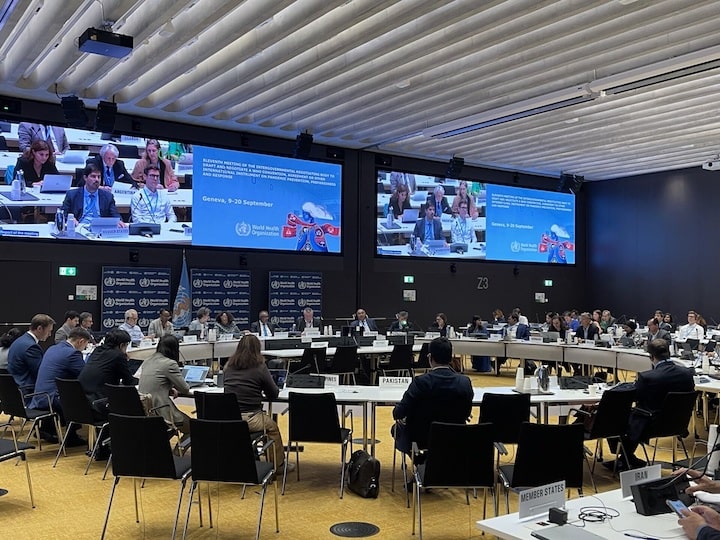After more than three years of intensive negotiations, World Health Organization (WHO) Member States have reached a historic milestone by concluding negotiations on a draft pandemic agreement. This proposal, which aims to fortify global collaboration in pandemic prevention, preparedness, and response, will be presented for consideration at the World Health Assembly in May 2025.
The accord comes at a time of heightened urgency, following the devastating impact of COVID-19 and amid new health threats such as H5N1 bird flu, measles, mpox, and Ebola.
Key Provisions and Global Collaboration
The draft pandemic agreement is the product of thirteen formal negotiation rounds, supplemented by numerous informal and intersessional discussions. The agreement seeks to address the shortcomings revealed during the COVID-19 crisis, focusing on equity, solidarity, and transparency. Among its core provisions are:
– Establishing a global Pathogen Access and Benefit-Sharing System, designed to ensure the swift and equitable sharing of pathogen data and resulting health products.
– Taking concrete measures on pandemic prevention through a One Health approach, which recognises the interconnectedness of human, animal, and environmental health.
– Building geographically diverse research and development capacities and facilitating technology transfer, particularly to benefit developing countries.
– Mobilising a skilled, multidisciplinary health emergency workforce and setting up a coordinating financial mechanism.
– Strengthening health system resilience and establishing a global supply chain and logistics network for vaccines, diagnostics, and treatments.
A significant feature of the agreement is its affirmation of national sovereignty. The text explicitly states that nothing in the accord shall authorise WHO to direct or mandate national laws, policies, or specific public health actions, such as travel bans, vaccination mandates, or lockdowns.
Political Reactions
The negotiations were marked by notable absences and divergent political stances. The United States, under President Donald Trump, withdrew from the WHO and the pandemic agreement talks as one of the administration’s first acts in January 2025. Trump’s decision to exit the discussions and his threats to impose steep tariffs on pharmaceutical products cast a shadow over the negotiations, creating uncertainty among manufacturers and governments. The US withdrawal was also compounded by significant cuts to foreign aid, further challenging the global health system.
Despite the absence of the United States, other world leaders have welcomed the progress. French President Emmanuel Macron hailed the agreement as a step towards creating “a new system to better protect us,” emphasising the importance of international solidarity in facing shared health threats.
WHO Director-General Dr Tedros Adhanom Ghebreyesus described the accord as “history in the making” and a demonstration that multilateralism remains vital even in a divided world.
As a major producer of vaccines and pharmaceuticals, India has advocated for greater fairness in vaccine and drug distribution and insisted on the importance of technology transfers to ensure affordable access for low and middle-income countries. Indian negotiators, alongside African counterparts, pushed for equity and justice as guiding principles of the agreement.
Looking Ahead
The finalised 32-page text of the agreement will be presented for adoption at the WHO’s annual assembly in May 2025. If approved, it will represent a generational accord, equipping the world with better tools to prevent, prepare for, and respond to future pandemics. The agreement’s success will ultimately depend on the political will of Member States to implement its provisions and maintain the spirit of solidarity that brought it to fruition


